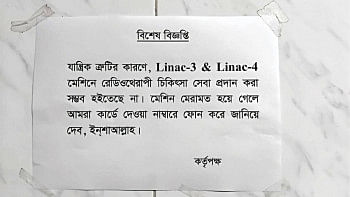President Yahya arrives

March 15, 1971
A COLD WELCOME FOR YAHYA
President Yahya Khan arrived in Dhaka today. No local political leader went to the airport to meet him. All the entries of the airport were heavily guarded. Siddiq Salik, then public relations officer in the Pakistan army in Dhaka, recounts, "It was a strange, eerie atmosphere charged with a deadly stillness. There were no bouquets of flowers, no civil officials, no rows of city elite, no hustling of journalists, and no clicking of cameras. Even the official photographer was not admitted." [Siddiq Salik, Witness to Surrender, UPL 1997, pg.59]
Yahya drove quickly to the president's house in a heavily armed convoy. He could not help seeing that virtually every house sported a black flag mandated by the Awami League. The Farmgate check point was removed by Awami League to avoid embarrassment to the president whom Bangabandhu Sheikh Mujibur Rahman earlier declared publicly as a guest of "Bangladesh".
Yahya had requested Bhutto to go to Dhaka but he declined on the ground that after Bangabandhu's virtual declaration of independence there was no point in making the journey. He seemed more interested in getting power than in the unity of Pakistan, commented GW Choudhury, a close confidante of Yahya. [GW Choudhury, The Last Days of United Pakistan, UPL, 2011, pg. 163]
THE LAST MILITARY CONFERENCE
In the evening of March 15, Yahya summoned the local senior military officials for an on-the-spot situation report. Siddiq Salik, then public relations officer in the Pakistan army at Dhaka, reports that the president was not presented with any in-depth study of the complex political situation. He also didn't ask for it.
At the end of the briefing, Yahya said, "Don't worry. I will line up Mujib tomorrow… will give him a bit of my mind… shall cold shoulder him and won't even invite him for lunch. Then I will meet him the day after and see how he reacts. If he doesn't behave, I'll know the answer."
The meeting dispersed, and no recommendations were made. This was the last military conference Yahya Khan held in Dhaka, reports Siddiq Salik. [ Siddiq Salik, Witness to Surrender, UPL 1997, pg.59]
WHAT WILL BANGABANDHU DEMAND?
Archer K Blood, then American consul general in Dhaka, writes in his memoir that just minutes before Yahya's arrival Alamgir Rahman came by to tell him that Bangabandhu was going to urge Yahya to agree to an immediate handover of power to the Awami League in East Pakistan. Now that Bhutto had made similar proposal in his March 14 speech and Bangabandhu held the de facto control of the East Pakistan government the demand seemed more tenable, comments Blood. Bangabandhu would also demand that the strength of the military in East Pakistan be cut back to the level existing before March 1, 1971. Bangabandhu, according to Alamgir, would then agree to the convening of the National Assembly and would accept any time limit for constitution-making set by Yahya. He further informed that any attempt by Yahya to exert force would be met by an instant declaration of independence. [Archer K Blood, The Cruel Birth of Bangladesh, UPL, 2006, pg. 189]
PEACEFUL AGITATION CONTINUES
Third week into the non-cooperation movement, peaceful agitations continued and all offices and businesses remained shut except those permitted in the Awami League directives.
Protesting the killing of two students by the army, Justice Abu Sayeed Chowdhury resigned as vice chancellor of Dhaka University.
Daylong meetings and rallies went on in the capital and black flags were hoisted on vehicles and buildings. Defying the marital law order no defence installation employees joined office.
Swadhin Bangla Sangram Parishad withdrew their earlier call to set up check posts at various points of the city to prevent flight of capital from Bangladesh to West Pakistan.
Shamsuddoza Sajen is a journalist and researcher. He can be contacted at sajen1986@gmail.com


 For all latest news, follow The Daily Star's Google News channel.
For all latest news, follow The Daily Star's Google News channel. 



Comments